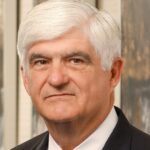Cathay continues to make important strides on its journey towards becoming a sustainability leader, as it endeavours to cultivate increased collaboration with important stakeholders to decarbonise the aviation industry and achieve its goal of net-zero carbon emissions by 2050.
Following the successful launch of its Corporate Sustainable Aviation Fuel (SAF) Programme in 2022, Cathay has announced the addition of three new partners to the programme.
Cargo customers Dimerco Express Group and Yusen Logistics, as well as the programme’s first non-governmental organisation (NGO) partner Business Environment Council, have joined Cathay to promote the wider adoption of renewable energy by the aviation industry to decarbonise their business travel and cargo shipments.
These new partners also join the programme’s launch customers – AIA, Airport Authority Hong Kong (AAHK), Kintetsu World Express (KWE), PwC China, Standard Chartered and Swire Pacific. As leaders in corporate climate action, Cathay’s Corporate SAF Programme partners are committed to reducing the climate impact from their business travel and airfreight activities through scaling up the use of SAF.
Cathay Group CEO Ronald Lam said: “Cathay is undertaking a multi-pronged approach to contribute to the aviation industry’s transition towards a greener future. SAF is an important facet of this approach, and we have received strong support from our corporate and cargo customers since the launch of our Corporate SAF Programme.
“We have also established new SAF supply partnerships in the broader Asia region to convey a clear message to the SAF supply chain that there is firm demand from this part of the world.
“We would like to warmly welcome our new partners, and express our gratitude to our original launch customers for their continued support of the programme. We look forward to welcoming other interested companies to sign up to reduce their indirect emissions from flight-related activities, and join our mission to be Greener Together.”
SAF is considered to be the most important lever for decarbonising airline operations over the next few decades, before alternatively powered aircraft can be widely deployed in commercial operations. Compared to conventional jet fuel, SAF can reduce over 80% of carbon emissions on a lifecycle basis, depending on the SAF technology and feedstock used.
Cathay was among the first airlines in the world to announce a target of 10% SAF for its total fuel use by 2030. Since then, it uplifted SAF at Hong Kong International Airport for the first time in 2022, and successfully conducted its first overseas SAF uplifts on commercial flights at Singapore Changi Airport and Los Angeles International Airport last year.
Subscribe to the FINN weekly newsletter

